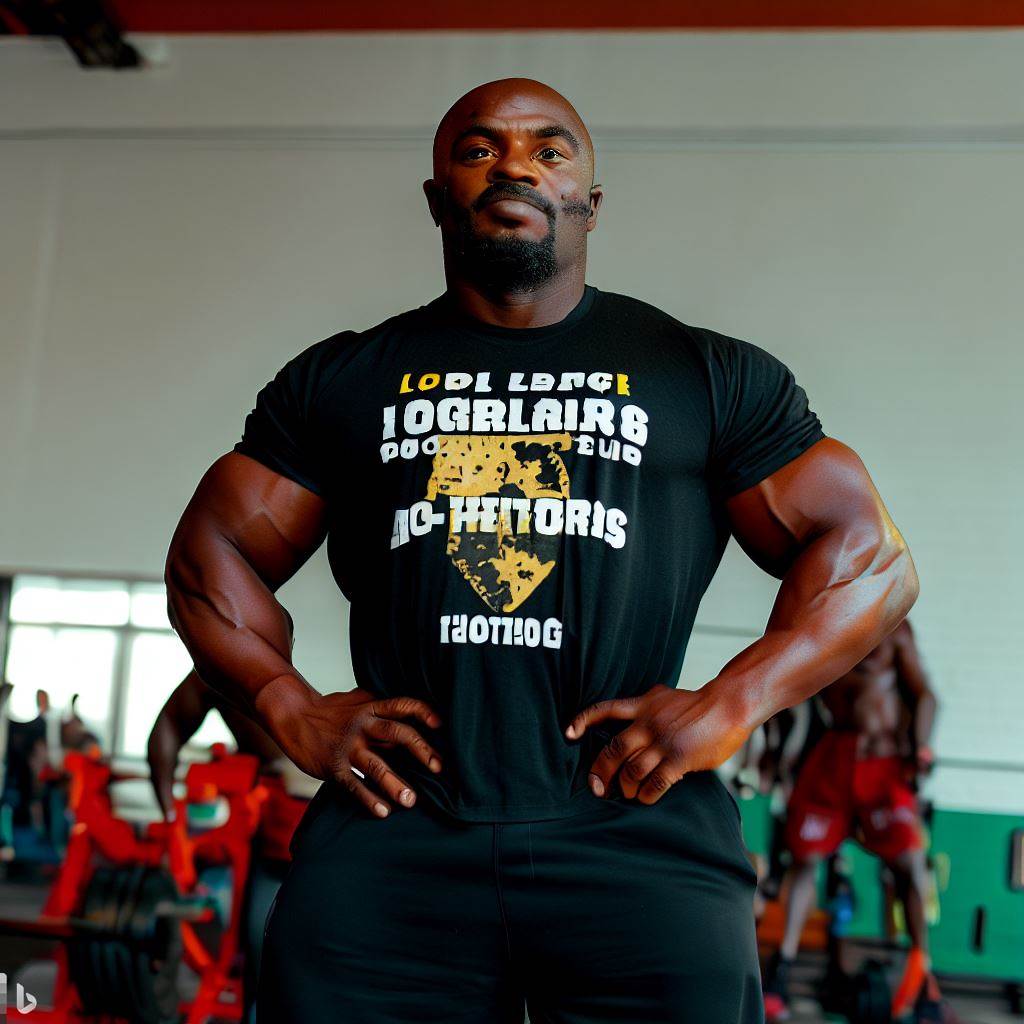Introduction
Ethics play a crucial role in the field of strength coaching, as they provide guidelines for ethical behavior.
In Nigeria, the practice of strength coach ethics is gaining prominence.
The Importance of Ethics in the Field of Strength Coaching
Ethics in strength coaching are essential to ensure the safety, well-being, and success of athletes.
Coaches must adhere to ethical principles to promote fair play, respect, and professionalism.
Overview of Strength Coach Ethics in Nigeria
In Nigeria, strength coach ethics encompass several key aspects.
Firstly, coaches must prioritize the health and safety of athletes by following proper training and conditioning protocols.
Additionally, coaches should demonstrate integrity and honesty by providing accurate information and avoiding conflicts of interest.
They should also maintain confidentiality and respect the privacy of athletes.
Furthermore, coaches need to promote fair play and equal opportunities for all athletes, regardless of their background or abilities.
They should strive to create an inclusive and supportive environment that fosters personal and athletic growth.
Moreover, coaches should continuously enhance their knowledge and skills, staying updated on the latest advancements in strength coaching.
In Nigeria, the practice of ethical standards is vital for the success and well-being of both coaches and athletes.
Through adherence to ethical principles, coaches can establish a strong foundation for growth and success in strength training.
Definition and Significance of Strength Coach Ethics
Definition and Scope of Ethics in Strength Coaching
- Ethics in strength coaching refers to the principles and guidelines that govern professional behavior.
- It involves making moral choices and decisions that promote the well-being of athletes.
- Strength coach ethics encompass integrity, honesty, respect, and responsibility towards athletes.
- The scope includes the coach’s behavior, relationships with athletes, and their overall professional conduct.
- It extends to areas such as training methods, athlete safety, confidentiality, and performance-enhancing substances.
Significance of Adhering to Ethical Standards in the Profession
- Adhering to ethical standards establishes trust and credibility between coaches and athletes.
- It promotes a positive and safe training environment that encourages athlete growth and development.
- Ethical strength coaching focuses on long-term athlete success rather than short-term gains.
- Coaches who prioritize ethics are more likely to build strong relationships with their athletes.
- By following ethical guidelines, coaches ensure the well-being and safety of their athletes.
- It safeguards against the use of performance-enhancing drugs and harmful training practices.
- Ethical coaches prioritize athlete health, ensuring they receive appropriate rest and recovery.
- Adhering to ethical standards protects the coach’s reputation and professional standing.
Overall, strength coach ethics play a defining role in the profession.
Adhering to ethical standards not only ensures the well-being and success of athletes but also contributes to the integrity and reputation of the strength coaching field.
Coaches who prioritize ethics create a positive and safe training environment, establish trust with athletes, and serve as role models for ethical behavior.
Read: Licensing & Certification for Sports Info Directors in Nigeria
Current ethical standards for strength coaches in Nigeria
Code of conduct and ethics established by relevant governing bodies
In Nigeria, the ethical standards for strength coaches are regulated by various governing bodies such as the Nigerian Strength and Conditioning Association (NSCA) and the National Sports Commission (NSC).
These organizations have developed a code of conduct and ethics that all strength coaches are expected to adhere to.
The code of conduct and ethics set forth by these governing bodies outline the professional responsibilities and expectations of strength coaches in Nigeria.
These include maintaining a high standard of integrity, competence, and professionalism in their interactions with athletes and clients.
Responsibilities of strength coaches towards athletes and clients
Strength coaches have a duty of care towards their athletes and clients.
They are responsible for their physical and mental well-being and must prioritize their safety during training sessions.
This includes properly assessing each individual’s fitness level and designing appropriate training programs to help them achieve their goals.
Furthermore, strength coaches must establish and maintain professional boundaries with their athletes and clients.
They must respect confidentiality and privacy, ensuring that any personal information shared during training sessions remains confidential.
Ethical considerations regarding training methods, nutrition, and supplements
Strength coaches in Nigeria must approach training methods, nutrition, and supplement recommendations with utmost ethical considerations.
They should base their practices on scientific evidence and avoid promoting or providing any illegal or harmful substances.
When it comes to training methods, strength coaches should prioritize the safety and well-being of their athletes and clients.
They must avoid using any training techniques that may cause unnecessary harm or put their athletes at risk of injury.
In terms of nutrition, strength coaches should provide evidence-based dietary advice and promote healthy eating habits.
They should refrain from promoting restrictive diets, excessive supplementation, or any other practices that may have detrimental effects on an individual’s health.
Similarly, strength coaches must be cautious when recommending supplements to their athletes and clients.
They should only suggest supplements that are legal, safe, and have been proven to enhance performance within the boundaries of anti-doping regulations.
Read: Educational Paths for Nigerian Strength Coaches
Case studies on ethical dilemmas faced by strength coaches in Nigeria
Ethical challenges related to performance-enhancing drugs
- A strength coach in Nigeria is approached by an athlete who asks for assistance in obtaining performance-enhancing drugs.
- The coach is torn between helping the athlete achieve better results and maintaining ethical standards.
- The coach consults with other professionals and educates the athlete about the risks and consequences of using such drugs.
- The strength coach focuses on alternative methods to improve the athlete’s performance within ethical boundaries.
- By prioritizing the athlete’s well-being and adhering to ethical guidelines, the coach avoids compromising their professional integrity.
Handling conflicts of interest in coaching and consulting roles
- A strength coach in Nigeria works with multiple clients, including athletes and other individuals seeking general fitness guidance.
- The coach faces dilemmas when the interests of different clients conflict with one another.
- The coach establishes clear boundaries and communicates openly with all clients about potential conflicts.
- By prioritizing transparency and fairness, the coach ensures that each client’s needs and goals are addressed and conflicts are minimized.
- The strength coach consistently evaluates and adjusts their approach to accommodate diverse clients without compromising professional ethics.
Maintaining confidentiality and privacy of athletes and clients
- A strength coach in Nigeria is privy to personal information and sensitive data about athletes and clients under their care.
- The coach faces ethical challenges in safeguarding this information and ensuring privacy.
- The coach establishes strict confidentiality protocols and obtains informed consent from athletes and clients regarding data sharing.
- By implementing secure data storage and communication systems, the coach protects sensitive information from unauthorized access.
- The strength coach regularly updates their knowledge on data protection laws and regulations to comply with evolving standards.
Strength coaches in Nigeria often encounter ethical dilemmas related to performance-enhancing drugs, conflicts of interest, and maintaining confidentiality.
By prioritizing ethical standards and seeking guidance when confronted with such challenges, coaches can navigate these situations with integrity.
Ensuring the well-being and best interests of their athletes and clients.
Read: Nurturing Talent: Youth Coaching in Nigeria

Learn More: The Career Path of an Assistant Coach in Nigeria
Importance of transparency and accountability in strength coaching ethics
The importance of transparency and accountability in strength coaching ethics cannot be overstated.
Role of openness and honest communication in ethical decision-making
- Openness and honest communication foster trust between coaches and athletes.
- Transparent decision-making processes ensure fairness and provide a clear understanding of ethical standards.
- By openly discussing ethical issues, coaches can make informed decisions that prioritize the well-being of athletes.
Establishing mechanisms for reporting ethical violations
- Creating a reporting system allows athletes and staff to report unethical behavior without fear of reprisals.
- Whistleblower protection encourages individuals to come forward with concerns, ensuring ethical standards are upheld.
- The reporting system should be easily accessible and confidential to protect the privacy of individuals involved.
Consequences and disciplinary actions for unethical behavior
- Implementing clear consequences for unethical behavior reinforces the importance of ethical standards.
- Disciplinary actions should be proportional to the severity of the violation to foster fairness.
- Publicly addressing unethical behavior sends a strong message that it will not be tolerated in the profession.
- Coaching organizations should have a process in place to investigate and address reported violations promptly.
In Nigeria, where strength coaching is growing rapidly, it is crucial to establish a strong ethical foundation.
Transparency and accountability are key elements in maintaining the integrity of the profession.
Without these principles, unethical behavior can erode trust and negatively impact athletes’ development.
Openness and honest communication play a vital role in ethical decision-making among strength coaches.
When coaches openly discuss ethical issues, they can collaborate with athletes to make informed decisions.
Engaging athletes in these conversations empowers them and ensures their well-being is given priority.
Read: Roles of an Assistant Coach in Nigerian Sports Teams
Promoting ethical conduct among strength coaches in Nigeria
Educating coaches on ethical practices and professional behavior
- Coaches should receive thorough education on ethical practices and understand the consequences of unethical behavior.
- They should be aware of the importance of maintaining client confidentiality and respecting privacy rights.
- Coaches should also be taught about the ethical use of performance-enhancing substances and the dangers associated with them.
- Education should focus on promoting fair and equal treatment of all athletes, regardless of their background or abilities.
Developing mentorship programs to guide novice coaches
- Establishing mentorship programs will provide young coaches with guidance and support.
- Experienced coaches can share their knowledge and experiences to help the novice coaches navigate ethical dilemmas.
- Mentors can provide advice on appropriate relationships with athletes and help coaches develop their own ethical framework.
- These programs will foster a culture of ethical conduct and prevent the spread of unethical practices among coaches.
Encouraging professional organizations and associations to create platforms for discussing ethical issues
- Professional organizations and associations should establish forums for open dialogue on ethical concerns and challenges.
- Through these platforms, coaches can share their experiences and seek guidance from their peers.
- These discussions can lead to the development of best practices and ethical guidelines for strength coaches in Nigeria.
- Collaboration among professionals will promote a unified approach to ethical conduct and create a positive impact.
Conclusion
A recap of the significance of strength coach ethics in Nigeria shows that ethical standards are crucial for the development and success of athletes in the country.
Strength coaches must uphold these standards to ensure professionalism and fairness in their practice.
Therefore, a call to action is made for strength coaches to prioritize and embrace ethical values.
By doing so, they can contribute to the growth and improvement of the coaching profession in Nigeria and maintain a positive reputation.
It is important to emphasize the positive impact ethical coaching has on athletes and the profession.
By adhering to strong ethical standards, coaches can inspire and motivate athletes, build trust, and create a supportive environment for their development.
Coaches must recognize their responsibility to athletes and the profession, and actively strive to uphold ethical standards to ensure long-term success and positive outcomes.




